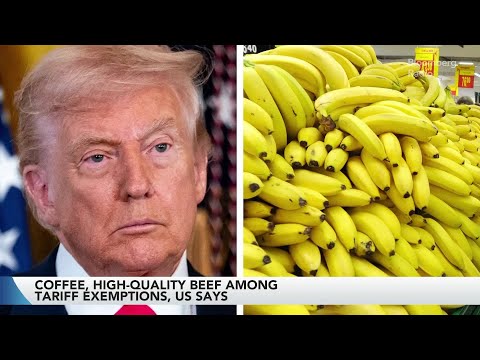Henrietta Treyz, Co-Founder at Veda Partners, discusses the implications of the Supreme Court’s upcoming ruling on presidential tariff authority.
European Union officials are concerned a US push to expand the list of EU products subject to higher steel and aluminum tariffs may run afoul of the spirit of the trade agreement they signed this summer.
The EU’s trade chief, Maros Sefcovic, as well as trade ministers from the bloc’s 27 member states, will raise the issue with US Commerce Secretary Howard Lutnick when they meet in Brussels Nov. 24, according to people familiar with the matter. EU ambassadors prepared for the intervention last week.
The trade deal, agreed between European Commission President Ursula von der Leyen and US President Donald Trump in August, was to remove many of the bloc’s tariffs on American goods while putting a 15% tariff ceiling on most European products going into the US.
The EU still faces a 50% duty on steel and aluminum exports as well as on many other derivative products that contain the metals. Washington revises the list of derivative products that are subject to the higher tariff rate several times a year.
The EU is particularly concerned that the breadth of goods hit by the 50% metals rate — currently surpassing 400 items — as well as potential new, higher levies on different industries will dilute the EU-US trade deal and the agreed 15% tariff ceiling, said the people who spoke on the condition of anonymity.
Olof Gill, a commission spokesperson, said EU officials are focused on working with the US to fully implement the trade deal.
“The Commission continues to engage with the US both at political and technical levels,” he said in an email.
The 15% tariff ceiling applies to cars and the EU is keen to ensure that it will also cover other industries the US might hit with sectoral duties in the future. As part of the accord, a small number of EU goods benefit from lower rates, while the bloc has presented legislation to scrap tariffs on US industrial goods and some non-sensitive agricultural exports.
Implementation of that legislation is still pending approval in the European Parliament, where lawmakers have singled out the inclusion of products subject to the 50% metal tariffs as a major source of concern.
——–
More on Bloomberg Television and Markets
Like this video? Subscribe and turn on notifications so you don’t miss any videos from Bloomberg Markets & Finance: https://tinyurl.com/ysu5b8a9
Visit http://www.bloomberg.com for business news & analysis, up-to-the-minute market data, features, profiles and more.
Connect with Bloomberg Television on:
X: https://twitter.com/BloombergTV
Facebook: https://www.facebook.com/BloombergTelevision
Instagram: https://www.instagram.com/bloombergtv/
Connect with Bloomberg Business on:
X: https://twitter.com/business
Facebook: https://www.facebook.com/bloombergbusiness
Instagram: https://www.instagram.com/bloombergbusiness/
TikTok: https://www.tiktok.com/@bloombergbusiness?lang=en
Reddit: https://www.reddit.com/r/bloomberg/
LinkedIn: https://www.linkedin.com/company/bloomberg-news/
More from Bloomberg:
Bloomberg Radio: https://twitter.com/BloombergRadio
Bloomberg Surveillance: https://twitter.com/bsurveillance
Bloomberg Politics: https://twitter.com/bpolitics
Bloomberg Originals: https://twitter.com/bbgoriginals
Watch more on YouTube:
Bloomberg Technology: https://www.youtube.com/@BloombergTechnology
Bloomberg Originals: https://www.youtube.com/@business
Bloomberg Quicktake: https://www.youtube.com/@BloombergQuicktake
Bloomberg Espanol: https://www.youtube.com/@bloomberg_espanol
Bloomberg Podcasts: https://www.youtube.com/@BloombergPodcasts



